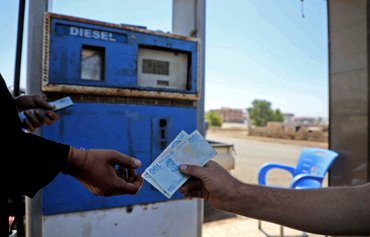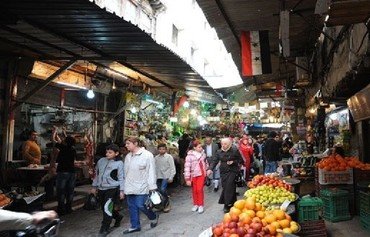Syrian President Bashar al-Assad on Thursday (June 11th) sacked his prime minister of four years, as the country grapples with a stinging economic crisis and renewed protests.
Imad Muhammad Dib Khamis, 58, had been Syria's prime minister since 2016.
He is replaced by Water Resources Minister Hussein Arnous for an interim period leading to legislative polls set for next month.
Like Khamis, incoming premier Arnous has for several years been the target of US and EU sanctions.
Parliamentary polls had been due in Syria earlier this year, but were postponed twice due to the novel coronavirus pandemic. The new set date is July 19th.
Khamis' sacking follows sharp criticism of his government over its handling of the economic crisis.
Syria's economy has been battered by nine years of war compounded by a financial crisis in neighbouring Lebanon, which had served as a conduit to bring dollars into regime-held areas despite international sanctions.
In recent days, the value of the Syrian pound on the black market has tumbled from one record low to the next.
Skyrocketing cost of living
At one point this week the exchange rate peaked at 3,000 pounds to the dollar, more than four times the official rate of around 700, and 60 times its pre-war rate from 2011.
The rapid deterioration has sparked rare criticism in regime-held areas, including in the southern city of Sweida.
"Revolution, freedom, social justice," dozens of protestors shouted, in slogans reminiscent of the 2011 uprising whose repression sparked a civil war that has killed more than 380,000 people.
Prices of some basic goods are set to increase further after US legislation known as the Caesar Act comes into effect, targeting companies dealing with Damascus.
The World Food Programme says the skyrocketing cost of living in Syria, where most people already live below the poverty line, means hunger could soon spread.
Syrians also have felt the pinch as the cash-strapped regime has repeatedly cut rations of subsidised fuel.
In a bid to replenish state coffers, the regime last month ordered assets seized from Syrian tycoon Rami Makhlouf, al-Assad's cousin.

![This file photo taken on May 11th, 2013 shows then-electricity minister Imad Muhammad Dib Khamis after a meeting in Damascus. Syrian President Bashar al-Assad sacked Khamis, who was serving as PM since 2016, on June 11th. [STR/AFP]](/cnmi_di/images/2020/06/12/24502-Syria-deposed-premier-600_384.jpg)





